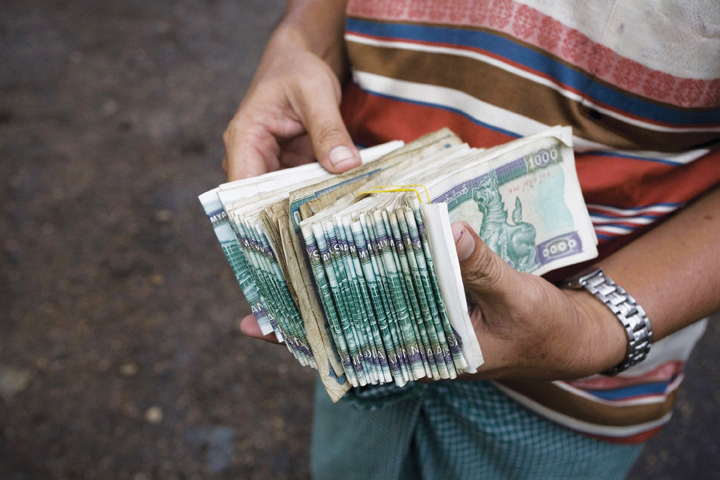Myanmar’s Union Parliament has approved the 2019 Tax Law, cutting taxes for unassessed income to rates as low as three percent. The new law serves as a de facto amnesty for individuals and businesses with high levels of undeclared income.
Under the new law, which goes into effect on October 1st, income with no identified source will only be taxed three percent up to MMK 100 million, five percent up to MMK 300 million, 10 percent up to MMK 3 billion, and 30 percent for MMK 3 billion and higher.
Previous rates for such income were between 15 and 30 percent, which parliament feared incentivized people to not declare their full wealth and not pay their full taxes. In theory, the drastically lower tax rate will entice people to divulge their true income and actually pay their taxes rather than risk tax evasion charges.
A similar proposal was brought before parliament last year, but critics bashed the tax cut as rewarding those who have neglected to pay taxes and punishing law abiding citizens who have always paid the full amount.
However, this year’s vote comes amid rumors of an unpaid debt crisis sparked by comments from U Soe Thein, deputy governor of the Central Bank of Myanmar (CBM). The rumors caused long lines at bank branches as people scrambled to withdraw their money. (And equally long lines at Yangon’s gold shops.)
Although the government denied a full-blown crisis (and U Soe Thein soon resigned his post), it hopes the tax amnesty will allow companies and entrepreneurs to re-invest their unassessed income and begin paying off their outstanding loans. In a recent editorial, Frontier magazine pointed out that the Asia-Pacific Group on Money Laundering declared that Myanmar needed to make “major improvements” to avoid landing on their international grey list.
“Myanmar is undergoing an observation period and could be placed back onto the grey list next year,” the editorial argued. “Given the lack of a progress, a tax amnesty that encourages those with undeclared income to put it into the property sector is not going to be viewed favorably.”
Parliament voted 498 ‘yes’ out of 570 to approve the tax bill.


